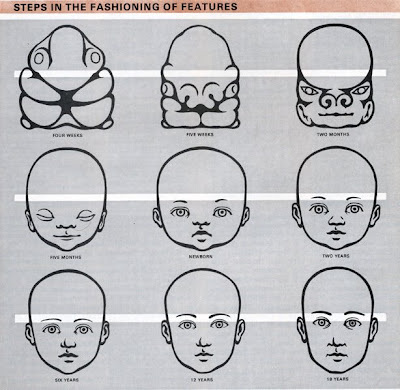
Wednesday, April 23, 2008
Tuesday, April 22, 2008
#88
jejune \juh-JOON\, adjective:
1. Lacking in nutritive value.
2. Displaying or suggesting a lack of maturity; childish.
3. Lacking interest or significance; dull; meager; dry.
Were I to make this public now, it would be dismissed as the raving of a mind at the end of its tether, unable to distinguish fiction from reality, real life from the jejune fantasies of its youth.
-- Ronald Wright, A Scientific Romance
By the inflection of his voice, the expression of his face, and the motion of his body, he signals that he is aware of all the ways he may be thought silly or jejune, and that he might even think so himself.
-- Jedediah Purdy, For Common Things
A while ago, Michael Kinsley wrote that Jewish Americans envied Israelis for living out history in a way that made the comfort and security of life in New York or Los Angeles seem jejune.
-- Geoffrey Wheatcroft, "The Big Kibbutz", New York Times, March 2, 1997
Jejune derives from Latin jejunus, "fasting, hence hungry, hence scanty, meager, weak."

1. Lacking in nutritive value.
2. Displaying or suggesting a lack of maturity; childish.
3. Lacking interest or significance; dull; meager; dry.
Were I to make this public now, it would be dismissed as the raving of a mind at the end of its tether, unable to distinguish fiction from reality, real life from the jejune fantasies of its youth.
-- Ronald Wright, A Scientific Romance
By the inflection of his voice, the expression of his face, and the motion of his body, he signals that he is aware of all the ways he may be thought silly or jejune, and that he might even think so himself.
-- Jedediah Purdy, For Common Things
A while ago, Michael Kinsley wrote that Jewish Americans envied Israelis for living out history in a way that made the comfort and security of life in New York or Los Angeles seem jejune.
-- Geoffrey Wheatcroft, "The Big Kibbutz", New York Times, March 2, 1997
Jejune derives from Latin jejunus, "fasting, hence hungry, hence scanty, meager, weak."

Wednesday, April 2, 2008
#87
deus ex machina \DAY-uhs-eks-MAH-kuh-nuh; -nah; -MAK-uh-nuh\, noun:
1. In ancient Greek and Roman drama, a god introduced by means of a crane to unravel and resolve the plot.
2. Any active agent who appears unexpectedly to solve an apparently insoluble difficulty.
In times of affluence and peace, with technology that always seems to arrive like a deus ex machina to solve any problem, it becomes easy to believe that life is perfectible.
-- Stephanie Gutmann, The Kinder, Gentler Military
But we also need the possibility of cataclysm, so that, when situations seem hopeless, and beyond the power of any natural force to amend, we may still anticipate salvation from a messiah, a conquering hero, a deus ex machina, or some other agent with power to fracture the unsupportable and institute the unobtainable.
-- Stephen Jay Gould, Questioning the Millennium
Deus ex machina is New Latin for "god from the machine"; it is a translation of the Greek theos ek mekhanes.
Trivia: The dramatic device dates from the 5th century BC and is especially associated with Euripides, one of the greatest classical tragedians.

1. In ancient Greek and Roman drama, a god introduced by means of a crane to unravel and resolve the plot.
2. Any active agent who appears unexpectedly to solve an apparently insoluble difficulty.
In times of affluence and peace, with technology that always seems to arrive like a deus ex machina to solve any problem, it becomes easy to believe that life is perfectible.
-- Stephanie Gutmann, The Kinder, Gentler Military
But we also need the possibility of cataclysm, so that, when situations seem hopeless, and beyond the power of any natural force to amend, we may still anticipate salvation from a messiah, a conquering hero, a deus ex machina, or some other agent with power to fracture the unsupportable and institute the unobtainable.
-- Stephen Jay Gould, Questioning the Millennium
Deus ex machina is New Latin for "god from the machine"; it is a translation of the Greek theos ek mekhanes.
Trivia: The dramatic device dates from the 5th century BC and is especially associated with Euripides, one of the greatest classical tragedians.

Subscribe to:
Posts (Atom)
